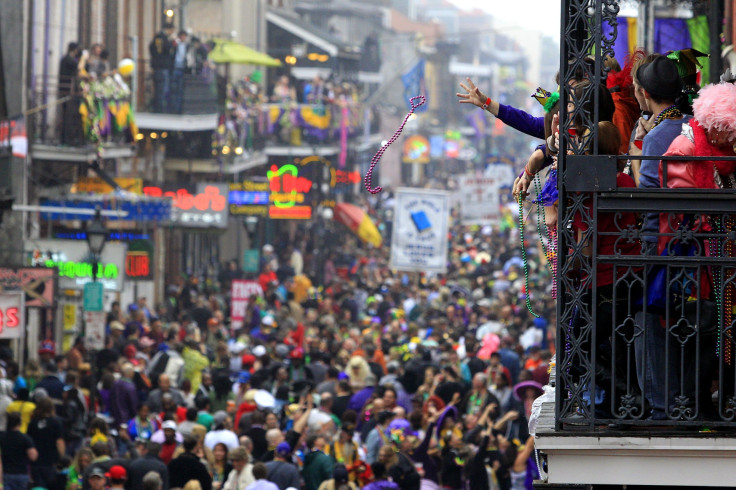Louisiana Marriage Act: New Orleans Tourism Industry Has ‘Much At Stake’ In Controversial Religious Freedom Bill

The New Orleans Convention and Visitors Bureau has come out against a proposed state law that would protect businesses that might discriminate against gay and lesbian couples. Tourism industry leaders are concerned that such a bill could mar New Orleans’ image as a welcoming destination and turn away visitors, who pump an estimated $7 billion into the state’s economy every year.
The head of New Orleans’ visitors bureau said the city is looking to avoid what happened in Indiana after a similar bill recently considered – and later amended – there sparked a national boycott against the state. “Our hospitality industry, like those in all other destinations, is extremely sensitive to perception and proper imagery,” Stephen Perry, president of the visitors bureau, said in an emailed statement. Arkansas, whose state legislature passed its own version of a religious freedom law, quickly followed suit in changing the bill’s language after Gov. Asa Hutchinson refused to sign it, citing the backlash seen in Indiana.
“We saw and closely monitored the extremely adverse reaction to the proposed Indiana and Arkansas laws by small, medium and Fortune 500 companies, other American municipalities and states, sporting organizations, nonprofits and economic development concerns,” said Perry. “In a similar vein, New Orleans is more dependent than either Indianapolis or the state of Arkansas on its tourism, hospitality and cultural economy in terms of employment, industry size and tax revenues generated. Thus, we are extremely sensitive and engaged on these issues. We have much at stake.”
Dubbed the “Marriage and Conscience Act,” Louisiana’s bill, introduced last week by Republican state Rep. Mike Johnson, would protect private business owners who claim that their religious beliefs bar them from recognizing same-sex marriages.
In Indiana, the backlash against a proposed religious freedom bill was swift. Companies like Walmart and Apple promised to boycott the state if it didn’t amend or drop its religious freedom bill, which critics said would allow businesses to refuse to serve gays or lesbians. Several cities outside Indiana said they would no longer sponsor government-funded travel to Indiana.
Officials in New Orleans, whose convention center has been a major boost for the city’s struggling economy post-Hurricane Katrina, have said such negative publicity for Louisiana could cripple its tourism industry. “We are deeply committed to and appreciative of our religious freedom, and, in fact, we demand and expect those rights,” said Perry. “We also believe that some legislation has been circulated in our nation that seeks to establish a right to discriminate in the marketplace under an otherwise well-intended cloak of religious freedom. We feel that is morally and economically wrong.”
© Copyright IBTimes 2024. All rights reserved.






















